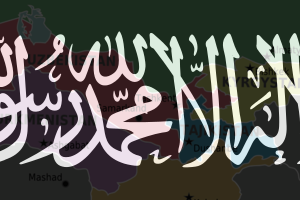China eyes Iran's potential as a trade corridor
By Sudha Ramachandran
May 26th, 2016, The CACI Analyst
Iran’s location near key trade routes and strategic waterways could make it a major Eurasian trade and transit corridor in the coming decades. China is keen to tap into Iran’s potential. But will Iran’s rise as a trade hub undermine the importance and prospects of the China-Pakistan Economic Corridor (CPEC)? This possibility has raised concerns in Pakistan that China’s commitment to making the Gwadar port a key node in the CPEC could dwindle as Iran’s trade corridors take shape and if Pakistan’s government fails to address China’s security concerns.
TAPI and India's energy diplomacy
By Sreemati Ganguli
February 5th, 2016, The CACI Analyst
The recent ground-breaking ceremony of the Turkmenistan-Afghanistan-Pakistan-India (TAPI) pipeline, was followed by several Indo-Russian Memoranda of Understanding (MoUs) on energy during the 16th annual Indo-Russian Summit in Moscow in December 2015. These events add to Rosneft’s decisions in 2014 to buy a 49 percent share in Essar Oil in mid-2015 and to cooperate with OVL, both Indians companies, on exploration and hydrocarbon production in Russia’s offshore Arctic. Also, Prime Minister Narendra Modi visited Central Asia in July 2015, particularly Kazakhstan and Turkmenistan, to declare India’s growing importance as an alternative energy market in Eurasia, aside from the EU, China and Japan, and as a potential power in the energy-rich Eurasian space.
Beijing waivers on Afghanistan security commitment
By Richard Weitz (09/02/2015 issue of the CACI Analyst)
That China is as worried as Afghanistan’s other neighbors regarding how to sustain security in that country is evident in how Beijing has set aside some long-standing “red lines” concerning that country. In recent months, Chinese diplomats have more actively tried to promote reconciliation between the Afghan government and the Taliban as well as between Afghanistan and Pakistan. China has also more openly provided security assistance to the Kabul government. But Beijing has yet to take a decisive step for Afghan peace despite the critical issues involved.
China pushes Pakistan to fight terrorism selectively
By Sudha Ramachandran (05/08/2015 issue of the CACI Analyst)
While China prods the Pakistani government to crack down on Uighur militants and their bases in North Waziristan, it ignores and even appeases Islamabad’s support of anti-India terrorist groups and has rushed to Pakistan’s defense in international forums. While this may endear Beijing to the Pakistani establishment, a selective approach to terrorism is not productive in the long run as groups like the East Turkistan Islamic Movement are drawing strength from Pakistan’s Inter-Services Intelligence’s terrorism network.

Islamic State in Central Asia: threat or opportunity
By Charlie Smith (08/07/2015 issue of the CACI Analyst)
Central Asia is a key region that many believe has fallen into the crosshairs of the terrorist group calling itself the Islamic State (ISIS). Local governments are gravely concerned about returning fighters and possible ISIS infiltration in the region, and foreign powers, especially neighboring Russia and China, have expressed their deep concerns. This grim picture, however, obscures a more complex, and perhaps more accurate, story. Might the specter of ISIS have less to do with its on-the-ground ability to destabilize the region and more to do with the geopolitical concerns of those who are stating these threats?








